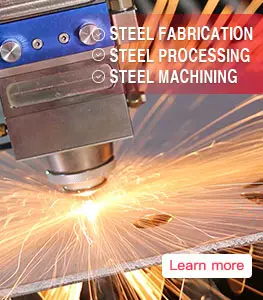Welcome to BBN Steel Materials Factory
Is S275J2 mild steel or carbon steel?
S275J2 steel is a type of mild steel(low-carbon steel), belonging to the carbon steel category. Mild steel is a term used to describe a type of low carbon steel with an extremely low carbon content in its composition. On the other hand, carbon steel refers to steel with a relatively high carbon content compared to other steel alloys.
The composition of S275J2 mild steel typically contains carbon, manganese, silicon, sulfur, phosphorus, and traces of other elements such as copper, chromium, and nickel. Its carbon content ranges from 0.14% to 0.20%, which is relatively low compared to high-carbon steel alloys that can contain up to 2% carbon.
EN10025-2 S275J2 mild steel is a structural grade steel that is used primarily for construction purposes. It is commonly used for the fabrication of structural components such as beams, columns, and bars, as well as for general construction and engineering applications. Due to its strength and durability, S275J2 is also suitable for use in heavy machinery, agricultural equipment, and other industrial applications.
One of the advantages of S275J2 mild steel is its relatively low cost compared to other high-strength steel alloys. This makes it an ideal material for small to medium-sized projects that require structural strength at a reasonable cost. Additionally, S275J2 can be easily machined, welded, and formed, making it a versatile material for a variety of applications.
S275J2 mild steel does have some limitations. Its low carbon content means that it has relatively low hardness and strength compared to other types of carbon steel. This may make it unsuitable for heavy-duty applications that require higher levels of strength and durability. Also, S275J2 may not be suitable for applications that require high levels of corrosion resistance, as it may corrode over time if exposed to harsh environments.
S275J2 Low-carbon steel is a versatile material that is commonly used in construction, manufacturing, and engineering applications due to its affordability, ease of use, and high ductility. While it may not be suitable for heavy-duty applications that require high levels of strength and durability, it is an ideal material for small to medium-sized projects that require structural strength at a reasonable cost.
.webp)
.webp)
.webp)
.webp)
.webp)
.webp)
.webp)
.webp)
.webp)



Leave a Message